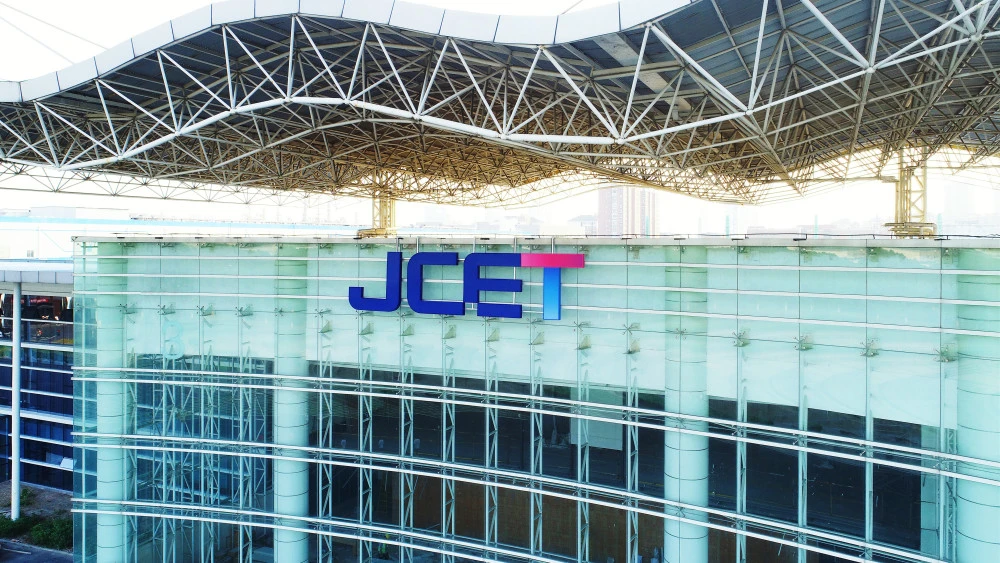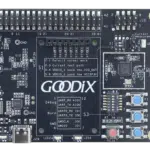
JCET Semiconductor has changed car electronics and communication with new tech. Their ideas improve energy use, connections, and how cars work. They hit big goals: a 68% revenue growth in car electronics in 2023 and record sales in late 2023. This shows more people want their advanced tech. JCET spent RMB 1.44 billion on research in 2023, showing they care about new ideas. By focusing on advanced packaging, which makes most of their money, JCET stays a leader in changing the semiconductor world.
Key Takeaways
-
JCET Semiconductor is a leader in car electronics. They use advanced packaging to improve energy use and performance.
-
In 2023, they spent RMB 1.44 billion on research. This shows they focus on new ideas and staying ahead.
-
Using materials like silicon carbide (SiC) helps electric cars save energy. It also makes them work better and last longer.
-
JCET works with big companies like MIT and Qualcomm. This teamwork helps them stay top in chip technology.
-
By following safety rules like ISO 26262, JCET makes sure their chips are safe and work well for cars today.
JCET Semiconductor’s Leadership in the Industry
Advanced packaging technologies and their importance
JCET Semiconductor has changed the car market with new packaging tech. These updates make car semiconductor packaging work better and use less energy. The car industry needs these improvements. Key facts show how these technologies help:
|
Metric |
Description |
|---|---|
|
Interconnect Pitches |
Now in single-digit micrometers, boosting density and performance. |
|
Bandwidth Capabilities |
Reaches up to 1000 GB/s, speeding up data transfers. |
|
Energy Efficiency |
Stays high, helping with eco-friendly semiconductor use. |
The redistribution layer (RDL) is key to these changes. Features like Line/Space (L/S), via, and pad sizes improve how it works. The RDL material’s dielectric constant affects data speed, making fast communication possible in cars. These technologies meet car safety rules like ISO 26262, ensuring safe and reliable chips for car makers.
Global leadership in semiconductor solutions for cars and communication
JCET Semiconductor is a top player in the global car chip market. It is the third-largest OSAT provider, holding 11.9% of the market. Its focus on 5G and high-performance computing keeps it ahead in car packaging. In early 2023, JCET’s car electronics revenue grew 88% compared to last year. This shows it can meet the car industry’s changing needs.
JCET’s car chip packaging sets new standards for performance and efficiency. By using advanced tech, it helps car makers build smarter, more connected cars. Its work ensures cars meet today’s standards while performing well.
Key industries and uses for JCET
JCET Semiconductor works in many fields like cars, electronics, medical tools, and aerospace. Cars are a big focus, with the market expected to reach USD 23.51 billion by 2032 and grow 5.65% yearly from 2024 to 2032. JCET’s car chip packaging meets the tough needs of the car industry.
|
Statistic |
Value |
|---|---|
|
Market Valuation by 2032 |
USD 23.51 billion |
|
CAGR (2024-2032) |
5.65% |
|
Key Applications |
Computing, Consumer Electronics, Automotive, Military and Aerospace, Medical Devices |
JCET’s focus on new ideas helps it succeed in these areas. By following car safety rules and working with car makers, it provides reliable and efficient solutions. Its focus on saving energy and being eco-friendly makes it stronger in the car packaging market.
JCET Semiconductor Applications in Automotive Electronics
Power management solutions for electric and hybrid vehicles
JCET helps electric and hybrid cars manage power better. Their solutions save energy, reduce waste, and improve batteries. This makes cars go farther and work more reliably.
A study found 91% of people think electric or hybrid cars will lead by 2030. This shows the need for better power systems. JCET uses smart packaging to meet these needs. Their tech follows ISO 26262 rules, ensuring safety and efficiency. These solutions save energy and make cars safer to use.
High-density integration for compact and efficient automotive designs
Modern cars need small, smart electronics to fit more features. JCET solves this with high-density integration. This combines many functions into one small package, saving space and weight.
This helps car makers build smaller, lighter cars without losing features. JCET’s tech connects parts smoothly, using space wisely. These ideas help create smarter, more connected cars for today’s needs.
Wide bandgap power devices for enhanced energy efficiency
Wide bandgap devices like silicon carbide (SiC) are changing cars. They work faster, save energy, and handle high heat. JCET uses these to make electric cars more efficient.
|
Feature |
Description |
|---|---|
|
Efficiency |
|
|
Power Density |
SiC allows smaller, stronger designs for car inverters. |
|
Temperature Operation |
SiC works well in high heat, needing less cooling. |
|
Energy Savings |
Lighter SiC parts help cars go farther. |
|
Switching Speed |
SiC switches faster, cutting energy loss. |
|
Bidirectional OBC Efficiency |
SiC chargers work better than one-way designs. |
These features make SiC devices key for better electric cars. JCET adds these to their packages, meeting today’s energy and performance needs.
Contributions to ADAS and autonomous driving technologies
JCET Semiconductor helps improve ADAS and self-driving car technologies. These systems need accurate and dependable chips for safety in cars. JCET’s chip packaging meets strict needs, boosting performance and reliability.
ADAS and self-driving cars use chips for tough tasks. These include processing data, connecting sensors, and making decisions. JCET creates small, advanced packages that combine many parts. This design lowers delays and makes car features like collision avoidance work better.
JCET tests its chips to meet car safety rules. Tests include burn-in, humidity exposure, and high-temperature checks. For example:
-
Chips go through 100% burn-in to ensure safety.
-
Sensor chips face 1,000 hours of heat tests and extreme temperature changes.
-
These tests prove the chips can handle real-world conditions.
JCET follows ISO 26262 rules for top safety standards. Using materials like silicon carbide, it improves energy use and heat control. These updates help ADAS and self-driving cars work smarter and safer.
JCET’s focus on new ideas and safety makes it a leader. Its advanced packaging keeps cars safe and ready for modern challenges.
JCET Semiconductor’s Role in Communication Technologies
Helping Cars Use 5G for Better Connections
JCET Semiconductor helps cars use 5G for faster connections. This makes data transfer quicker and networks more reliable. With 5G, cars get real-time updates and better navigation. It also improves safety features for drivers and passengers. JCET uses advanced packaging to make chips work well with 5G systems.
5G also helps cars talk to roads, other cars, and people. This is called vehicle-to-everything (V2X) communication. It makes travel safer and more efficient. JCET follows ISO 26262 rules to ensure its chips are safe and reliable for these systems.
Powerful Computing for Real-Time Car Data
Modern cars create lots of data that needs fast processing. JCET makes small, powerful chips to handle this data quickly. These chips help with tasks like self-driving and driver-assistance systems.
New tech has made chips much faster than before.
-
Chips now use sub-5nm nodes, making them 10 times better.
-
Companies like Nvidia can do hundreds of trillions of tasks per second.
-
Tests like ADASMark show these chips handle hard tasks like 3D detection.
JCET’s packaging fits these strong chips into small car designs. This meets the growing need for smarter car systems.
V2X Communication for Safer Roads
V2X lets cars share information with their surroundings. JCET’s chip designs help V2X work better, improving safety and traffic flow. Tests show how V2X works in real life.
|
Aspect |
Details |
|---|---|
|
Test Time |
|
|
Messages Collected |
18,340 BSM and 110,000 SPaT messages |
|
Road Section |
1.3 miles with 6 RSUs |
|
Key Tasks |
Traffic Data, Predictions, and Navigation |
|
Results |
Better traffic understanding and safer driving |
These tests show V2X can reduce accidents and improve traffic. Adding precise GNSS helps cars see around corners or in bad weather. JCET’s focus on new ideas keeps its chips leading in smart mobility.
Improving In-Car Entertainment and Connection Systems
Today’s cars use advanced systems for entertainment and connection. JCET Semiconductor helps make these systems better with smart chip packaging. Their designs are small, work well, and combine many features.
Entertainment systems need fast data and strong connections. JCET’s chips handle these needs easily. They use special materials and designs to make systems run smoothly. Drivers and passengers enjoy music, maps, and voice commands without problems.
Connection systems in cars need strong communication tools. JCET makes chips that support wireless, Bluetooth, and internet. These features let users connect devices, use online services, and stay linked while driving.
JCET follows ISO 26262 safety rules to keep their chips safe and reliable. These rules are important for car systems, especially for driver-assistance features. JCET ensures their chips work well in all conditions.
JCET focuses on new ideas to make better chip designs. Their tech combines many features into small packages, saving space and weight. This meets the need for energy-saving and compact car systems.
JCET’s work improves car entertainment and connection systems. Their smart chip designs and safety focus make cars more connected, efficient, and easy to use.
Driving Innovation Through R&D and Collaborations
JCET’s investments in research and development for automotive solutions
JCET spends a lot on research to improve car chips. In 2023, they used RMB 1.44 billion for R&D. This was 9.7% more than the year before. These efforts helped them grow car electronics revenue by 68% in one year.
They also got 154 new patents from their research. These patents help them make better chip packaging for cars. By focusing on research, JCET stays ahead in the car chip market.
Collaborations with industry leaders to advance semiconductor technologies
JCET works with top schools and companies to improve chips. They team up with MIT and National Taiwan University for packaging and materials research. They also partner with Samsung and Qualcomm to make better chips.
|
Partner |
Collaboration Focus |
|---|---|
|
MIT |
Research on advanced chip packaging. |
|
National Taiwan University |
Studies on materials and engineering. |
|
Samsung Electronics |
Joint work on high-performance chips. |
|
Qualcomm |
Advanced mobile chip packaging projects. |
These partnerships bring new ideas and skills to JCET. Working with experts helps JCET stay a leader in making smart chips.
Focus on sustainability and energy-efficient innovations
JCET cares about saving energy and protecting the planet. They cut energy use by 51% and water use by 62% per PB made. This shows they want to reduce waste while making great chips.
Their energy-saving designs help car makers go green. JCET’s focus on eco-friendly tech supports cleaner and smarter cars. This helps both the environment and car performance.
Future Trends and JCET’s Vision for Cars and Communication
The car and communication industries are changing fast. New technology and customer needs drive this change. JCET plans to lead by creating smart packaging solutions for these growing fields.
New Trends in Cars and Communication
Some important trends shaping the future include:
-
People want smaller and more efficient devices.
-
Electronics are getting even tinier.
-
Stronger semiconductors are needed for advanced uses.
-
3D packaging is becoming more popular.
-
Spending on 5G, IoT, and car electronics is rising.
The car market is growing in areas like smart tech and electric vehicles. Advanced driver-assistance systems (ADAS) are expected to grow 19.8% yearly until 2027. By then, ADAS will make up 30% of the car chip market. Car infotainment systems will grow 14.6% yearly, reaching 20% of the market by 2027.
|
Market Area |
Growth Rate (%) |
Value (USD) |
Year |
|---|---|---|---|
|
15.26 |
25.17 Billion |
2033 |
JCET’s Plans for the Future
JCET sees its packaging tech shaping the future of cars and communication. They invest in research to make energy-saving and high-performing chips. Their work on 3D and wafer-level packaging keeps them ahead in innovation.
JCET also cares about the planet. They focus on designs that save energy and cut waste. This helps make cleaner, smarter cars. With their focus on new ideas and teamwork, JCET is ready to lead in car and communication tech.
JCET Semiconductor has changed car electronics and communication with new packaging tech. These updates improve energy use, connections, and how cars work. By using advanced packaging, JCET helps create smarter and more reliable cars. The company works on research and teams up with others to keep improving. JCET focuses on making eco-friendly and strong solutions for the future of cars and communication.
What makes JCET Semiconductor special in the car industry?
JCET uses advanced packaging to boost energy use and performance. It focuses on research and works with top companies for new ideas. This helps improve electric cars, ADAS, and communication systems.
How does JCET help electric and hybrid cars?
JCET makes power solutions that save energy and improve batteries. It uses silicon carbide (SiC) to make cars go farther and work better.
Why is JCET important for 5G in cars?
JCET’s chip designs allow fast data and strong connections. This helps with 5G features like live maps, V2X, and better car entertainment.
How does JCET keep chips safe and reliable?
JCET follows ISO 26262 safety rules and tests chips a lot. Tests include heat and stress checks to ensure chips work well in real life.
What does JCET do for self-driving car tech?
JCET makes small, strong chips that handle sensor and camera data. These chips power ADAS and self-driving systems, improving safety and features like lane-keeping.
See Also
Unveiling The Essential Automotive Features Of FREESCALE MCF5251CVM140
Understanding The MC9S12DJ256MFUE Specs For Automotive Use
Three Key Features Of SPC5605BMLL6 And SPC5607BMLL6 ECUs
AD9736BBCZ: Pioneering The Next Generation Of Wireless Tech
Three Effective Methods For Integrating MC9S12XET512VAG

